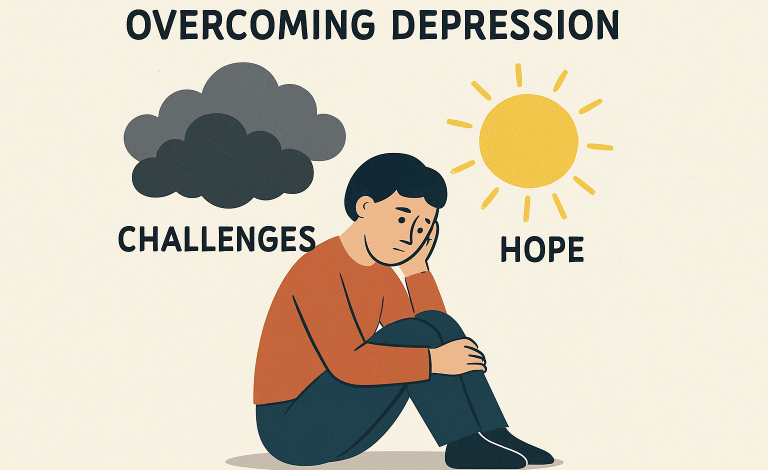Changing Views of Depression: Fresh Perspectives on Causes, Care, and Hope

Depression is no longer seen as a one-dimensional illness with a single cause or a standard solution. Once understood primarily through chemical imbalances or life circumstances, it is now recognized as a complex condition influenced by genetics, brain function, environment, and social factors. This broader understanding has reshaped how clinicians, researchers, and communities approach its causes and treatment. With advances in medicine, technology, and cultural awareness, conversations about depression have shifted from a silent struggle to an open dialogue. As perspectives evolve, so does the hope that individuals can find care that fits their unique needs—offering symptom relief and lasting paths toward resilience and recovery.
Depression Redefined: Moving Beyond Old Stereotypes
For decades, depression was overshadowed by misconceptions, commonly seen as a fleeting sadness or personal failing rather than a real illness. Today, the narrative has shifted significantly. Leading voices in mental health and organizations dedicated to advocacy have worked tirelessly to recast depression as a serious, medically-recognized condition—one that affects people of all backgrounds, ages, and walks of life. This new understanding encourages a more compassionate approach and helps promote access to better care. Innovative treatments have made it even easier to seek personalized support, including options to get TMS therapy for depression, which offers hope to individuals who might not have found relief through traditional options.
Viewing depression through a clinical lens moves the conversation away from blame and secrecy, breaking down the silence that can worsen suffering. Healthcare professionals, schools, and community groups increasingly dispel outdated stereotypes, allowing open discussion and practical solutions. This progress is significant given that depression is among the leading causes of disability worldwide, affecting more than 280 million people each year, according to the World Health Organization.
Spotting Early Signs and Knowing When to Seek Help
Recognizing depression early is crucial for effective treatment. While mood changes are often attributed to daily stresses, persistent symptoms may indicate a serious problem. Look for ongoing sadness, irritability, loss of interest, fatigue, sleep issues, or unexplained appetite or weight changes. If these last for two or more weeks, seek help from mental health professionals.
Early intervention can prevent symptoms from disrupting work, relationships, or goals. Whether talking to a friend, family member, or healthcare provider, taking the first step to professional help is a sign of strength and can lead to recovery.
Unraveling the Complex Roots of Depression
Depression is multifaceted, with roots in biological, psychological, and social factors. Genetics significantly influence risk—having a family member with depression increases it, but it’s not the only cause. Life events like grief, trauma, chronic health issues, or stress also contribute. Researchers believe brain chemistry shifts interact with outside events to trigger or worsen symptoms, making depression highly individual. Scientific studies show lifestyle, social environment, and chronic inflammation also play roles alongside genetics and neurochemistry. This has led to treatments targeting depression from multiple angles.
Emerging Approaches in Depression Treatment
Treatment for depression is more adaptable and promising than ever before. Standard therapies—like psychotherapy and medication—still form a strong foundation, but recent years have seen innovative solutions join these mainstays. Brain stimulation therapies, such as transcranial magnetic stimulation (TMS), now provide non-invasive relief for individuals who have not responded to initial medication and treatment. Mindfulness-based cognitive therapies and digital health tools also offer new paths for support, even in remote or underserved settings.
Most importantly, treatment is becoming more personalized. Mental health professionals increasingly tailor interventions to patients’ histories, symptoms, lifestyles, and preferences. This shift improves outcomes and acknowledges the reality that there is no single “right way” to heal from depression.
Chronic Depression and the Road to Recovery
For many, depression is a chronic challenge, like persistent depressive disorder (dysthymia) that lasts for years, requiring ongoing care. Recovery can seem slow and frustrating, but small gains accumulate. Combining therapy, medication, routines, social connection, and hobbies supports long-term progress. Patience, effort, and self-compassion are vital. Peer groups and counseling offer understanding, motivation, and coping strategies, reducing isolation.
Holistic Wellness: Lifestyle’s Role in Feeling Better
Holistic approaches complement medical treatments to support mental health recovery. Evidence shows that regular exercise, good nutrition, and adequate sleep improve mood and well-being. Physical health boosts brain chemistry, increasing resilience to stress. Mind-body strategies like yoga, meditation, and breathing are popular. Mindfulness can ease anxiety and negative thoughts linked to depression. Small, consistent changes can restore hope and a sense of control.
Breaking Stigma, Building Understanding
In recent years, society has made significant strides in addressing the stigma attached to depression. Open conversations in schools, workplaces, and media have encouraged more people to seek help and treated mental health with the same respect as physical health. Many employers and educational institutions offer wellness programs and resources to support their communities today.
As these conversations continue, reaching out becomes easier for those affected—helping replace fear and shame with understanding, acceptance, and empowerment.
Where to Find Support and Trusted Information
Navigating depression can be overwhelming, but help is available. Organizations like the National Institute of Mental Health provide free resources, hotlines, and evidence-based info to support individuals and families. Health news sources and clinics can help find local services, screened therapists, or new treatments. Whether exploring therapy, TMS, or support groups, taking the next step offers hope. Increasing knowledge, connections, and perspectives helps people overcome depression and regain brighter days.
Conclusion: Moving Toward a Brighter Future in Depression Care
The way we understand and approach depression has changed dramatically, opening doors to more compassionate, effective, and personalized care. By moving beyond old stereotypes and embracing scientific insights, society has begun to treat depression as the complex and legitimate health condition it truly is. Early recognition, innovative treatments like TMS, and supportive lifestyle changes offer hope for those navigating both short-term and chronic forms of depression. At the same time, breaking stigma and fostering open dialogue ensures that individuals no longer struggle in silence. With continued advancements in medicine, technology, and awareness, the path toward recovery is more apparent than ever—reminding us that while depression is challenging, it is also treatable, and healing is possible.



